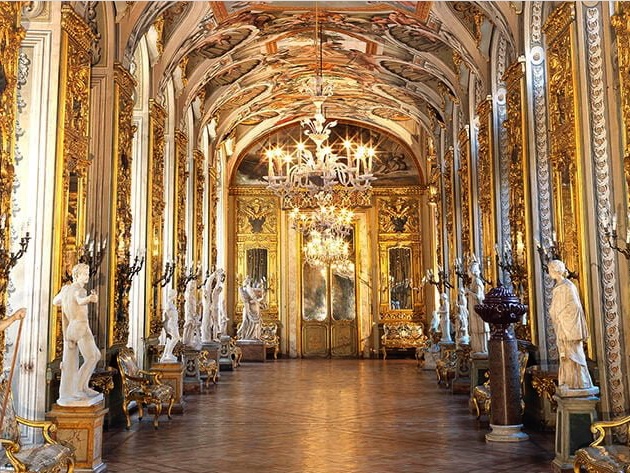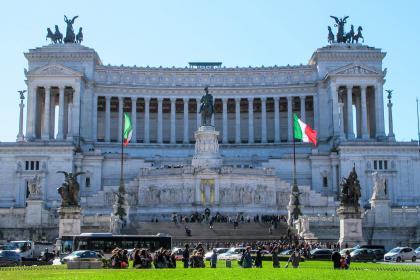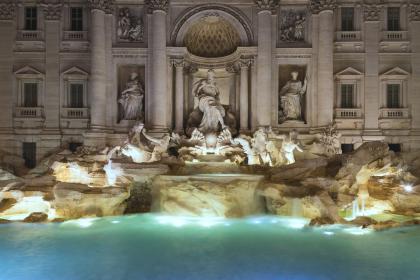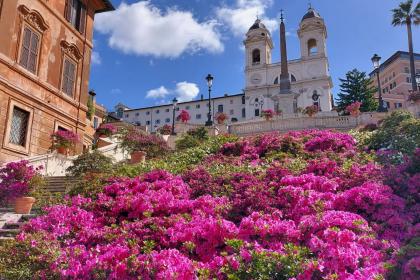
The Doria Pamphilij palace in via del Corso, one of the few in Rome to still be the home of the first owners, is home to the gallery of the same name and preserves an extraordinary heritage of furnishings and works of art.
The oldest nucleus, dating back to the mid-fifteenth century, was started by Cardinal Nicolò Acciapacci who was later succeeded by Cardinal Fazio Santorio, who between 1505 and 1507 completely rebuilt the building but then sold it to Pope Julius II Della Rovere who he asked to give it to his nephew. The palace was purchased in 1601 by Cardinal Pietro Aldobrandini, nephew of Clement VIII, and further expanded. In 1647 Olimpia Aldobrandini brought it as a dowry to Camillo Pamphilj, nephew of Innocenzo X, who entrusted Antonio Del Grande with the construction of the façades on via Lata and via della Gatta. Innocent X was responsible for the establishment of the splendid Gallery, whose paintings are arranged respecting the late eighteenth-century layout.
The façade on via del Corso was built between 1731 and 1734 by Gabriele Valvassori, while the wing on via del Plebiscito (1739-44) and the noble staircase (1748-49) are due to Paolo Ameli. The latest interventions, directed by Andrea Busiri Vici, date back to the second half of the 19th century and involved the construction of new elevations on via della Gatta and vicolo Doria. The moving facade on via del Corso, a masterpiece by Valvassori characterized by a dense succession of windows framed in imaginative Borromini-style frames, is one of the most innovative and original architectures of the early Roman eighteenth century. The portal leads to the beautiful quadrangular courtyard, with two orders of arches, partly dating back to the sixteenth-century interventions of Santorio. Inside the Galleria Doria Pamphilj you can admire, among the masterpieces, works by Velàzquez, Caravaggio and Bernini.
Photo credits: Courtesy of Doria Pamphilij palace official site
Piazza Venezia

 Condividi
Condividi
The Trevi Fountain

 Condividi
Condividi
The most famous of the Roman fountains: a jewel of water and stone
Piazza di Spagna

 Condividi
Condividi
Information
For visiting hours and costs see the Galleria Doria Pamphilj information sheet
 Condividi
Condividi
Location
To find out about all accessibility services, visit the Rome accessible section.












































